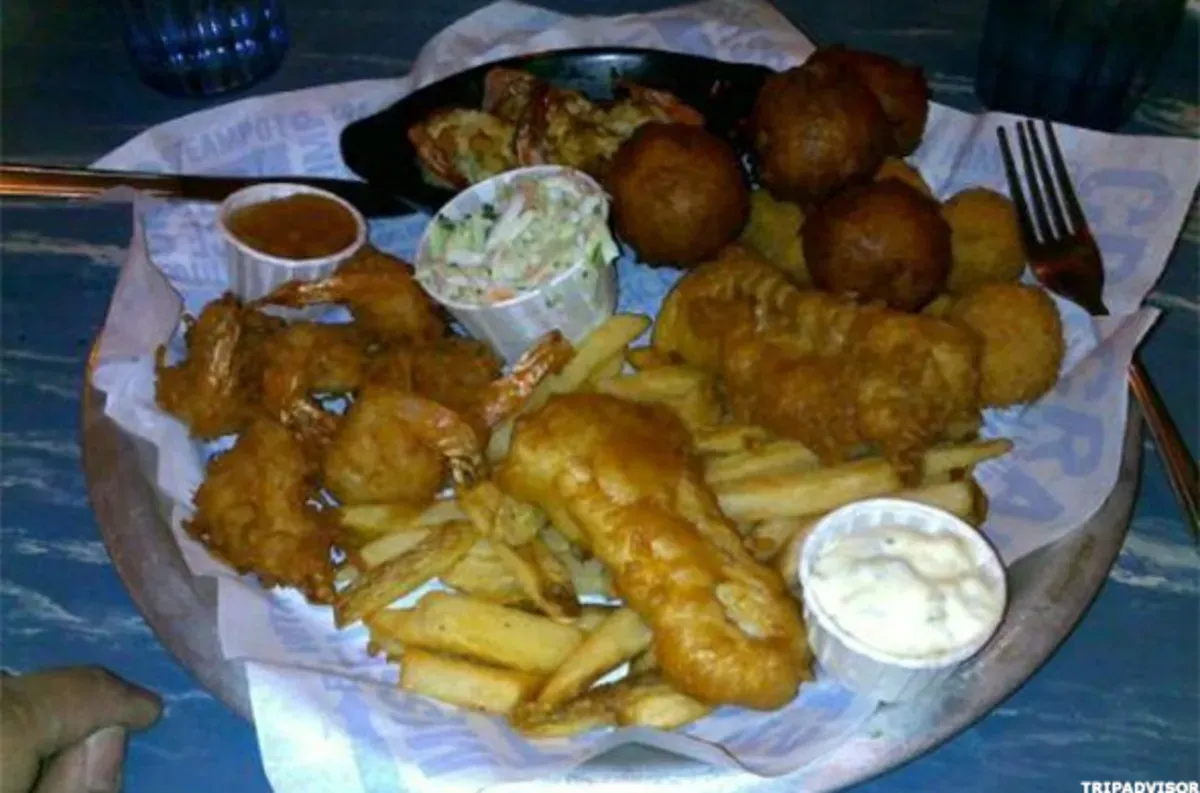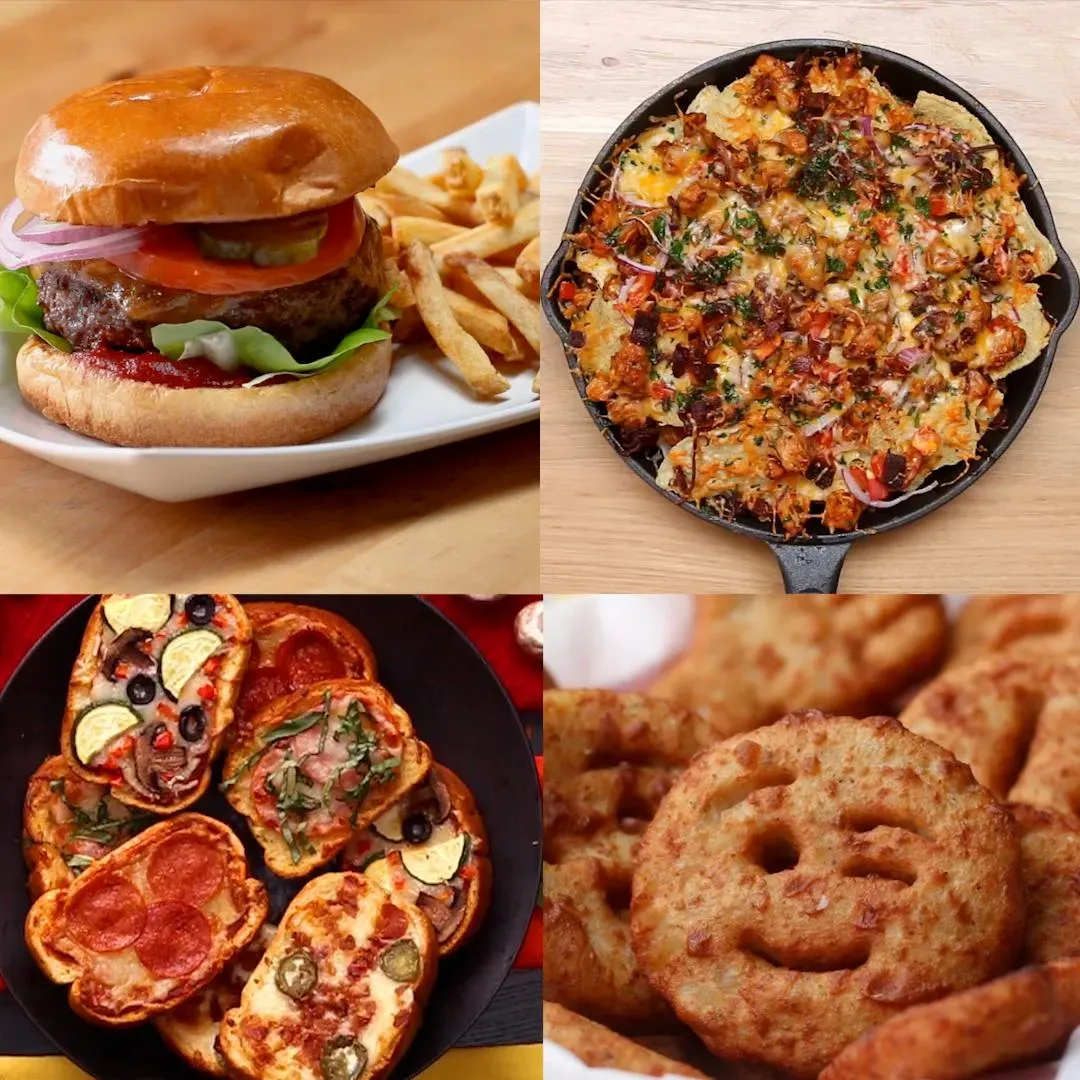Table of Contents
Dinner. It's supposed to be the relaxing end to the day, a chance to refuel. But often, it's where we make some of our most questionable food decisions. We're tired, hungry, and the lure of convenience or comfort food is strong. This is precisely when we fall prey to the siren song of unhealthy dinner foods. Think about it – the greasy takeout you grab because cooking feels like too much work, the frozen meal promising ease but delivering a load of sodium and preservatives, or maybe that third slice of cheesy pizza you didn't really need. These aren't just minor slip-ups; consistently choosing unhealthy dinner foods chips away at your well-being. They promise satisfaction in the moment but often leave you feeling sluggish, mess with your sleep, and over time, contribute to serious health problems. This article isn't here to guilt-trip you, but rather to yank back the curtain on what makes certain dinner choices particularly bad news, highlight the usual suspects you should probably ditch, and explain just what they're doing to your body. We'll also explore some straightforward ways to navigate the dinner hour without falling into the unhealthy food trap.
What Makes Certain Dinner Foods Unhealthy?

What Makes Certain Dinner Foods Unhealthy?
The Usual Suspects: Excessive Sugar, Salt, and Bad Fats
Look, most of us aren't trying to eat junk on purpose for dinner. We grab what's easy or what feels good. But the stuff that feels good often packs a punch of things your body doesn't need in large amounts. We're talking about sugar, sodium, and unhealthy fats. Added sugars, especially in sauces or pre-prepared meals, spike your blood sugar and offer zero nutritional value. Consuming too much sugar regularly can lead to weight gain and increase your risk of type 2 diabetes. Sodium, or salt, is everywhere in processed foods. While you need some salt, too much jacks up your blood pressure, putting strain on your heart. Then there are the fats – saturated and trans fats, often found in fried foods, fatty meats, and many baked goods. These fats clog arteries and raise bad cholesterol levels, paving a direct path to heart disease.
Missing the Good Stuff: Lack of Nutrients and Presence of Chemicals
It's not just what unhealthy dinner foods *add* to your plate; it's also what they *leave out*. Many of these meals are stripped of essential nutrients your body craves, like fiber, lean protein, vitamins, and minerals. Fiber keeps you full, aids digestion, and helps regulate blood sugar, but it's often absent in highly processed options. Protein is crucial for muscle repair and satiety, yet unhealthy dinners often prioritize carbs and fats. What you *do* get, besides empty calories, can be a cocktail of artificial colors, flavors, and preservatives designed to make the food look appealing and last forever on a shelf. Your body doesn't know what to do with these chemical compounds, and they can contribute to various health issues over time. Eating nutrient-poor food for dinner means you're missing a crucial opportunity to nourish yourself after a long day.
- High Added Sugars: Contributes to weight gain, diabetes risk.
- Excessive Sodium: Raises blood pressure, harms heart health.
- Unhealthy Fats (Saturated/Trans): Increases bad cholesterol, artery blockage risk.
- Low Fiber: Poor digestion, less satiety, blood sugar spikes.
- Low Lean Protein: Lack of muscle support, less fullness.
- Artificial Additives: Potential long-term health concerns.
Common Unhealthy Dinner Foods to Sidestep

Common Unhealthy Dinner Foods to Sidestep
The Pre-Packaged & Frozen Meal Fiasco
You know the ones. They promise a "complete meal" in minutes. Just zap it. Sounds great after a brutal day, right? Wrong. These pre-packaged and frozen meals are often ground zero for the unholy trinity: excessive sodium, weird fats, and not much else that's good for you. They're engineered for convenience and shelf life, not your health. That "creamy" sauce? Probably thickened with starches and loaded with saturated fat. The "chicken"? Often processed meat parts held together with binders. Reading the ingredient list can feel like a chemistry lesson, and not a fun one.
Greasy Takeout and Fried Everything
Ah, the allure of takeout. Chinese food cartons, pizza boxes, fried chicken buckets. These are classic unhealthy dinner foods for a reason – they hit that craving for salt, fat, and often, sugar. The problem isn't just the calories; it's the quality of those calories. Fried foods soak up unhealthy oils like sponges. That large pizza? It's a carb and saturated fat bomb, often topped with processed meats full of nitrates. And don't even get me started on the sugar lurking in many takeout sauces, even savory ones. It's comfort food, sure, but the discomfort to your digestive system and arteries later isn't worth it.
Here are a few common culprits:
- Frozen Pizzas (High sodium, saturated fat, refined carbs)
- Fried Chicken & Fries (High unhealthy fats, sodium, low nutrients)
- Instant Ramen (Extremely high sodium, often fried noodles, artificial additives)
- Most Fast Food Burgers & Sandwiches (Often processed meat, refined buns, unhealthy sauces)
- Sugary Cereals (If you're eating them for dinner, they're pure sugar and refined carbs)
Refined Carbs and Sugary Traps
It's easy to build a dinner around refined carbohydrates. Think white pasta with jarred sauce, white rice with minimal veggies, or a giant sub sandwich on a white bread roll. These foods cause rapid blood sugar spikes followed by crashes, leaving you hungry again soon after and potentially messing with your sleep. Then there are the hidden sugary traps: seemingly innocent things like store-bought salad dressings, barbecue sauces, and even some yogurts marketed as healthy can contain shocking amounts of added sugar, adding unnecessary empty calories to your evening meal.
The Real Toll of Unhealthy Dinner Foods on Your Health

The Real Toll of Unhealthy Dinner Foods on Your Health
Feeling Rough: Immediate Side Effects
Alright, let's talk about what happens right after you polish off those unhealthy dinner foods. It's not just about your waistline months down the road. The immediate aftermath can be pretty unpleasant. Ever eat a greasy, heavy meal and then feel like you need a nap, or worse, get that awful heartburn? That's your body protesting. High-fat foods take longer to digest, leaving you feeling sluggish and bloated. Sugary meals cause that rapid blood sugar spike, giving you a quick burst of energy followed by an inevitable crash, often making you feel tired and irritable. Trying to sleep after loading up on sodium and heavy foods? Good luck. Your digestive system is working overtime, and the excess salt can make you feel puffy and uncomfortable. It’s like your body sends you a memo: "Seriously? We just put *that* inside?"
Long-Term Damage: Weight Gain and Chronic Disease Risk
The occasional splurge on unhealthy dinner foods probably won't kill you, but making it a regular habit? That's where the real trouble starts brewing. Those excess calories, particularly from sugar and unhealthy fats, get stored as fat. Over time, this leads to weight gain and can inch you towards obesity. Obesity isn't just about how you look; it's a major risk factor for a laundry list of chronic diseases. We're talking type 2 diabetes, heart disease, high blood pressure, and even certain types of cancer. Your liver gets stressed trying to process all that sugar and fat. Your arteries start stiffening from the constant influx of saturated and trans fats. It's a slow, steady march toward health problems that could have been avoided with different choices at the dinner table.
Consider this:
- Regularly eating unhealthy dinner foods significantly increases the risk of developing Type 2 Diabetes.
- High sodium intake from processed dinners contributes to high blood pressure, a leading cause of heart attack and stroke.
- Excessive consumption of unhealthy fats can lead to clogged arteries and heart disease over time.
- Poor nutrient intake at dinner can lead to deficiencies affecting energy levels and overall bodily functions.
Navigating Dinner: Smarter Picks Than Unhealthy Dinner Foods
Simple Swaps and Meal Planning
so we've established that unhealthy dinner foods are a bad scene. The good news is, dodging them isn't rocket science. It starts with a little foresight. Instead of staring into the fridge abyss at 7 PM, wondering what sad, lonely ingredient you can scrounge up, try planning. Even just thinking about the next couple of nights can make a difference. Swap that frozen pizza for ingredients to make a quick flatbread pizza with whole wheat pita, some low-fat cheese, and actual vegetables. Instead of reaching for instant ramen, keep some whole wheat pasta and canned tomatoes on hand for a simple sauce. These aren't revolutionary ideas, just practical steps to have healthier options ready when hunger strikes.
Cooking at Home and Ingredient Awareness
The absolute best way to avoid unhealthy dinner foods is to take control of what goes into your meal. That means cooking at home more often. You dictate the amount of salt, the type of oil, and whether sugar sneaks into everything. It doesn't require being a gourmet chef. Simple meals like baked chicken breast with roasted vegetables, lentil soup, or a quick stir-fry with brown rice are miles better than most takeout options. Get into the habit of reading labels when you buy packaged goods – even things like bread, sauces, and canned goods can harbor surprising amounts of sodium and sugar. Knowing what you're eating is the first step to making better choices at dinner time.
- Swap white pasta for whole wheat or lentil pasta.
- Replace sugary sauces with homemade or low-sugar alternatives.
- Choose lean protein like chicken breast, fish, or beans over processed meats.
- Load up on non-starchy vegetables – they add nutrients and fiber without excess calories.
- Opt for baking, grilling, or stir-frying instead of deep frying.
Making Peace with Dinner Choices
So, we've pulled back the curtain on some of the usual suspects lurking on dinner plates and the less-than-charming things they do inside your body. It’s clear that consistently opting for unhealthy dinner foods isn't a victimless crime; your health is the one taking the hit. Swapping out that processed convenience or fried comfort isn't always easy, especially when tired or short on time. Recognizing the impact, however, is the first step. Dinner doesn't have to be a minefield, but it does require a bit more thought than simply grabbing whatever is easiest or tastes best in the moment. Making peace with healthier choices means acknowledging the trade-offs and deciding if that temporary comfort is worth the long-term cost.